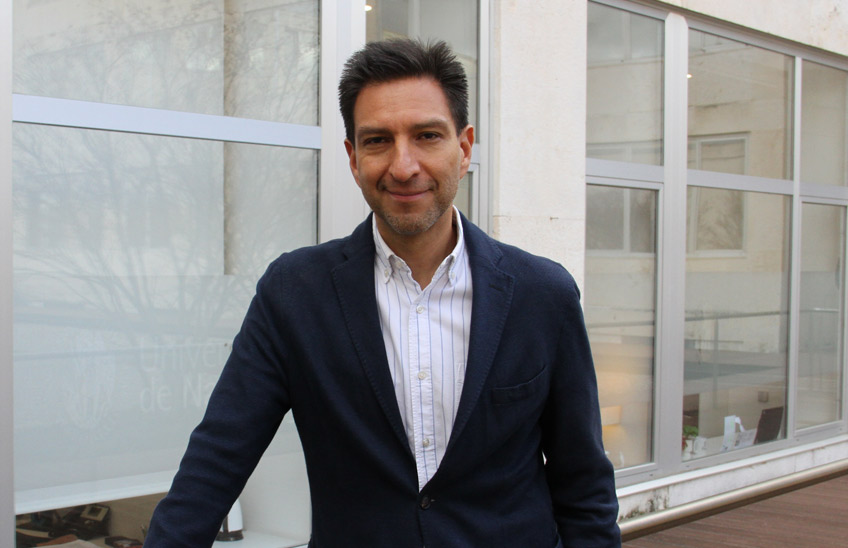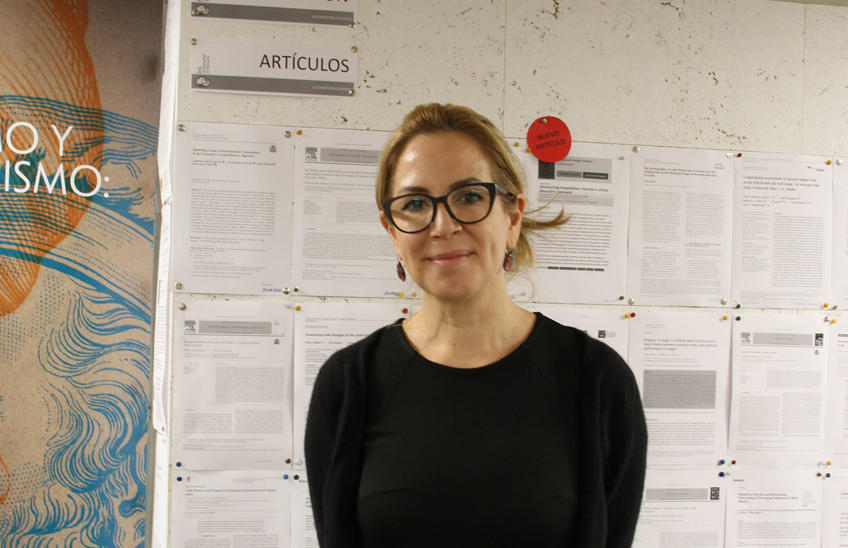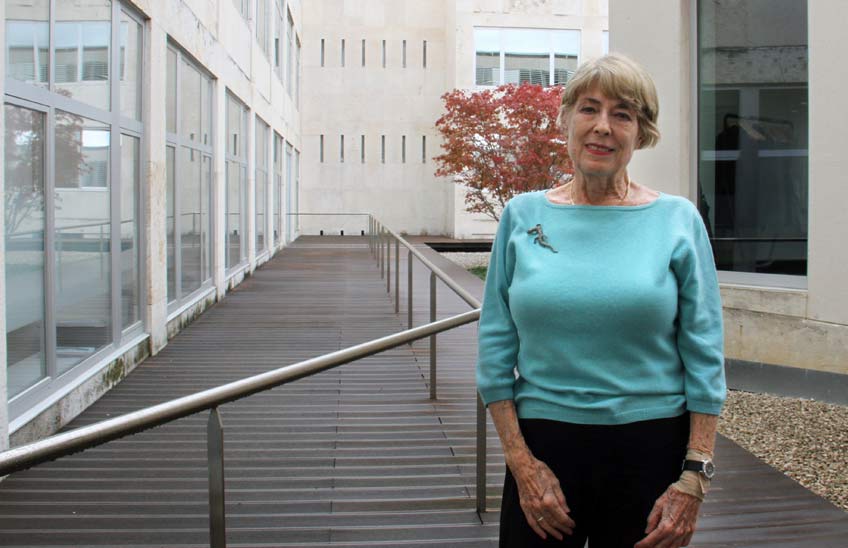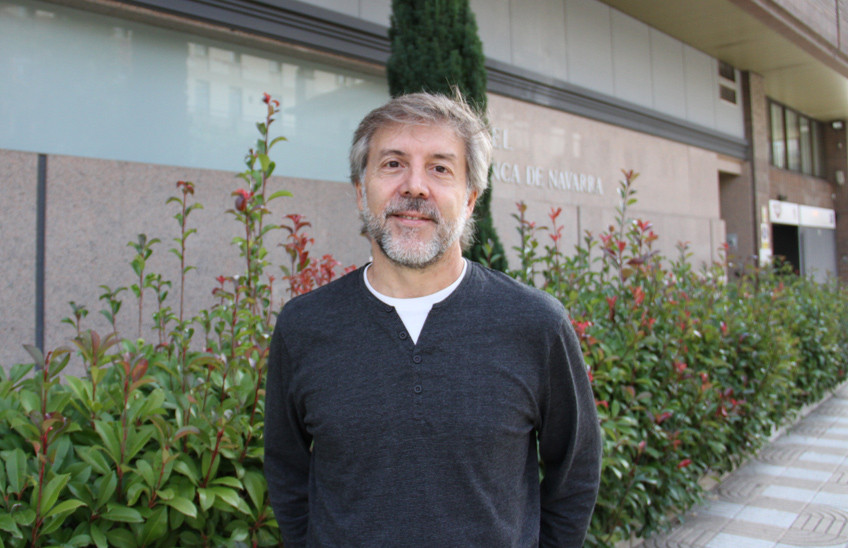Francisco Moscoso: "Thanks to Father Alliaume's work in Algeria, we have access to texts that reflect a centuries-old cultural tradition".
The Full Professor in programs of study Arabic and Islamic at the Autonomous University of Madrid has highlighted the religious and cultural feat of the Society of the Missionaries of Africa in the Sahara of Algeria in a seminar of the challenge ICS 24-25.

FotoNatalia Rouzaut.<br>/Francisco Moscoso, catedrático en Estudios Árabes e Islámicos en la Universidad Autónoma de Madrid en el Edificio Central de la Universidad de Navarra
05 | 12 | 2024
The Society of the Missionaries of Africa, also known as the Missionary Society of the White Fathers, first arrived in the Algerian Sahara in 1868. Since then, they have carried out immense apostolic work to establish the presence of the Catholic Church in a largely Muslim country. In addition to their religious work, the White Fathers devoted themselves to writing about Algerian cultural heritage until the middle of the 20th century. Unintentionally, they became historical sources on the ethnography and traditions of the Algerian Arab world, which was entirely oral. Francisco Moscoso, Full Professor in programs of study Arabic and Islamic at the Autonomous University of Madrid, has given a seminar on the occasion of the challenge ICS 24-25 'Occidentalism-Orientalism: crossed looks'. The expert shared his research on the historical background of the texts written by the White Fathers on the culture and ways of life of the Algerian Sahara.
The richness of oral culture
According to the expert, one of the great recipients of the cultural fabric of the Algerian desert was Father Yves Alliaume. This white priest dedicated himself for almost 50 years (from 1926 to 1975), in addition to his apostolic work, to writing thousands of texts that narrate traditions, customs, tales, popular stories, anecdotes and family stories that were not transcribed on paper, but were part of the oral culture of the Algerians. Alliaume was able to see the richness that surrounded him and wrote down everything that the inhabitants of the Algerian Sahara shared with him about their culture in the form of tales and stories. average "Thanks to Alliaume's work , we have access to texts that reflect a centuries-old cultural tradition, lifestyles that date back to the Middle Ages," says Professor Moscoso.
The integration of the White Fathers in the Arab world, specifically Father Alliaume, has succeeded in gathering a cultural and historical heritage. Moscoso affirms: "Father Alliaume did an enormous work in this sense, he edited documents that were never published, almost two thousand pages of ethnographic texts, describing the whole society of the Algerian Sahara".
The way of transmitting the knowledge and the Education, as in many other parts of the world, was by word of mouth. Alliaume became interested in writing in order to live with and learn from the locals and to facilitate the integration of the White Fathers who arrived after him. "Today, these texts serve to bring us closer to that cultural fabric sustained by stories, sayings, tales, folktales and traditions that have been shared orally for centuries. They represent ways of life that are becoming increasingly blurred," he says.
language According to speaker, the White Fathers, after learning their mother tongue (Algerian Arabic), dedicated themselves to living among different peoples and witnessing to their faith. All the texts, including those of Father Alliaume, are written in Algerian Arabic. In addition to the ethnographic richness to bring us closer to centuries-old customs and ways of life, the texts also have an important dialectological value. This is because the mother tongue of Algerian Saharan Arabic is a language that has been displaced by classical Arabic. Texts in this variation of language represent a very rich tool for the research of the language, as it lacks any institutional character and is not regulated.
The White Sisters, the female branch of the Society of Missionaries of Africa that was founded in Algeria, were also very important to Father Alliaume's work. They were dedicated to the female Education and contributed many ethnographic texts in this regard. "They collected the oral tradition proper to women's places, where only women participated. Women in all cultures have always been the depository of the collective report because they spend more time with the children and educate them, they know more tales and stories", emphasized Professor Moscoso. At final, they sent many texts to Father Alliaume, because he could not share them in the same way with the Algerian women.
The Church in the Algerian desert
At present, there are 4 dioceses in Algeria: the Archdiocese of Algiers, the Diocese of Constantine, the Diocese of Oran and the Diocese of Laghouat. Professor Moscoso detailed that in a country with a Muslim majority and hostile at many times to the Catholic Church, the establishment of these dioceses is the fruit of a seed planted over the years by the missionaries. On this point, he concluded the following: "Father Alliaume baptized only one person and many may think why so much effort. It is important to have a Christian presence in an environment different from your own. This presence implies contact and dialogue. And there they bore witness for a long time, despite the hostility they suffered".




